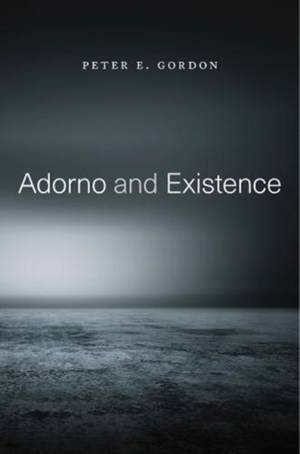
- Retrait gratuit dans votre magasin Club
- 7.000.000 titres dans notre catalogue
- Payer en toute sécurité
- Toujours un magasin près de chez vous
- Retrait gratuit dans votre magasin Club
- 7.000.0000 titres dans notre catalogue
- Payer en toute sécurité
- Toujours un magasin près de chez vous
Description
From the beginning to the end of his career, the philosopher Theodor W. Adorno sustained an uneasy but enduring bond with existentialism. His attitude overall was that of unsparing criticism, verging on polemic. In Kierkegaard he saw an early paragon for the late flowering of bourgeois solipsism; in Heidegger, an impresario for a "jargon of authenticity" cloaking its idealism in an aura of pseudo-concreteness and neo-romantic kitsch. Even in the straitened rationalism of Husserl's phenomenology Adorno saw a vain attempt to break free from the prison-house of consciousness.
"Gordon, in a detailed, sensitive, fair-minded way, leads the reader through Adorno's various, usually quite vigorous, rhetorically pointed attacks on both transcendental and existential phenomenology from 1930 on...[A] singularly illuminating study."--Robert Pippin, Critical Inquiry "Gordon's book offers a significant contribution to our understanding of Adorno's thought. He writes with expertise, authority, and compendious scholarship, moving with confidence across the thinkers he examines...After this book, it will not be possible to explain Adorno's philosophical development without serious consideration of [Gordon's] reactions to them."
--Richard Westerman, Symposium
Spécifications
Parties prenantes
- Auteur(s) :
- Editeur:
Contenu
- Nombre de pages :
- 272
- Langue:
- Anglais
Caractéristiques
- EAN:
- 9780674986862
- Date de parution :
- 01-08-18
- Format:
- Livre broché
- Format numérique:
- Trade paperback (VS)
- Dimensions :
- 132 mm x 203 mm
- Poids :
- 317 g

Les avis
Nous publions uniquement les avis qui respectent les conditions requises. Consultez nos conditions pour les avis.






